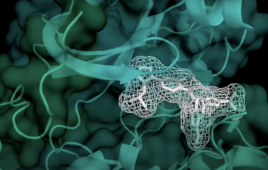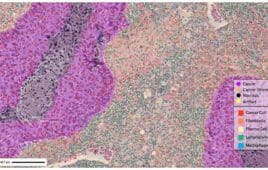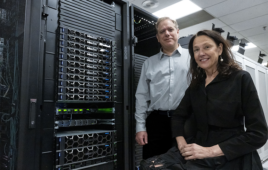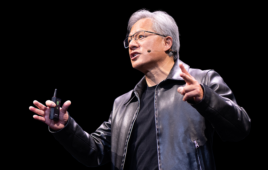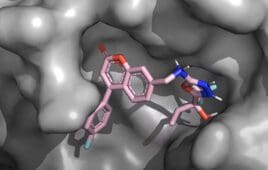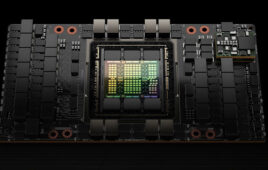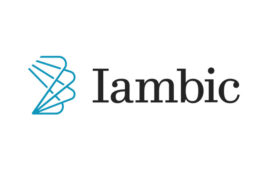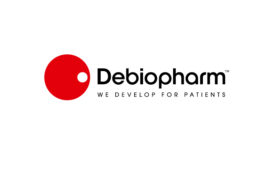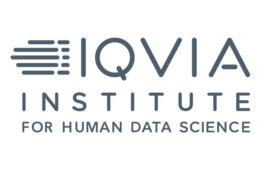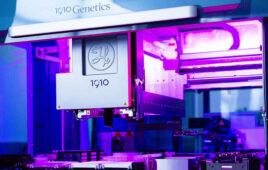Endometriosis, a condition where endometrial tissue grows outside the uterus, has a strong genetic underpinning. A new study published in the Journal of Molecular Diagnostics sheds light on this connection. Researchers from a team including Genzeva, LumaGene, RYLTI Biopharma, Brigham & Women’s Hospital of Harvard University and QIAGEN Digital Insights used a unique approach in…
Global biotech VC trends in Q1 2024
The first quarter of 2024 saw a flurry of funding activity in the biotech sector, with early-to-mid-stage companies attracting most of the investment dollars. Among the most notable late-stage deals was blood-based cancer diagnostics firm Freenome‘s $254 million Series E round. The South San Francisco-based company, which is developing a platform for early cancer detection…
Machine learning model forecasts Lilly’s Mounjaro sales to triple in 2024
Novo Nordisk has received a considerable amount of attention for its meteoric growth of late, but Eli Lilly isn’t far off in that domain as of late. Lilly recently topped the S&P 500 healthcare index in terms of growth, jumping almost 34% as demand for its metabolic therapies surge. Last year, Lilly projected it would…
Pharmaceutical firms betting big on AI struggle to find the right people
Three-quarters of IT decision-makers at pharmaceutical companies plan to invest from $500,000 to $5 million in AI this year which, for many, doubles their budgets over the past year. That’s one of the findings based on the cross-industry research report involving 1,400 IT decision makers from Rackspace and AWS. “In terms of AI adoption, almost…
Why Atomwise sees a ‘generational shift’ in drug discovery with AI applied to screening
Atomwise’s AIMS (Artificial Intelligence Molecule Screening) project has demonstrated significant potential to accelerate drug discovery. In a landmark multiyear study published in Nature Scientific Reports, the project used Atomwise’s AI platform, AtomNet, to successfully identify structurally novel compounds across a diverse range of therapeutic targets. In the virtual high-throughput screening (HTS) study, AtomNet analyzed 318…
Forget efficiency, focus on shifting the standard of care with AI in drug discovery
Much has been made about AI’s potential to accelerate drug development timelines while chipping away at its often multi-billion-dollar price tag. But Abraham Heifets, CEO of Atomwise, believes that focusing on efficiency is not necessarily the right measure — or the right conversation — to have. Time for a different conversation “The two ways to…
Clinical trials have a diversity Problem. Real-world data could be part of the solution
While diversity in clinical trials has won attention in recent years, uneven representation of diverse populations in clinical trials remains a core barrier to global healthcare equity. Real-world data (RWD) paired with artificial intelligence techniques can almost instantly analyze how well drugs work in diverse subpopulations once they hit the market. RWD can also help…
Inside the AI-powered Roche-PathAI companion diagnostics collaboration
PathAI and Roche Tissue Diagnostics (RTD) have inked an exclusive collaboration to develop AI-enabled companion diagnostics that builds on their initial partnership announced in October 2021. To date, PathAI and Roche have commercially launched four algorithms through the partnership. The new partnership will provide biopharma sponsors with integrated technology for developing companion diagnostics incorporating AI-based…
Pitt’s high-performance computing upgrade signals accelerated translational research
The University of Pittsburgh’s recent, significant expansion of its high-performance computing capabilities, courtesy of a gift from Dell Technologies, indicates a strategic commitment to using large-scale data analysis for faster translational research. The additional 9.672 gigaFLOPS of computational power – translating to nearly 9.7 trillion additional computations per second – could help Pitt’s Innovation Hub…
Unlearn CEO: Digital twins could slash clinical trial patient enrollment by 25% or more
The startup Unlearn embodies several trendy AI characteristics. Generative AI company? Check. San Francisco headquarters? Check. Aims to disrupt drug development (specifically, clinical trials) with AI? Check. Prominent AI leadership? Check. Mira Murati, the high-profile CTO of OpenAI, joined Unlearn’s board of directors in 2023. But the company’s pedigree is unique. The firm was founded…
From AI transformers to computer-based reasoning to rethinking drug design: AI pioneers discuss the future
In a packed panel discussion at GTC, moderated by NVIDIA Founder and CEO Jensen Huang, the architects of the groundbreaking transformer model gathered to explore their creation’s potential. The panel featured seven of the eight authors of the seminal “Attention Is All You Need Paper” paper, which introduced transformers — a type of neural network…
Genentech’s lab in the loop aims to tap the power of quantity for quality drug discovery
We can design chips that power self-driving cars and create physically-realistic video footage based on text descriptions. Yet, as Genentech’s Aviv Regev pointed out in a session about the company’s lab in the loop at NVIDIA’s GTC conference, the humble cells within us operate with a complexity that still eludes our full understanding. It turns out that a cell is itself like a computational device…
NVIDIA exec on how ‘NIMs’ can help biopharma navigate the challenges of deploying generative AI
The buzz surrounding generative AI may be undeniable, but its real-world impact on heavily-regulated sectors like drug discovery continues to evolve. Consequently, most drug candidates, circa 90%, continue to fail. Kimberly Powell, vice president of Healthcare at NVIDIA, believes that a new microservices-based offering known as NIMs (NVIDIA Inference Microservices) could help pharma firms navigate…
NVIDIA expands BioNeMo platform with new foundation models and microservices for AI-powered Drug Discovery
NVIDIA is putting the power of generative AI for drug discovery into the hands of more pharmaceutical and biotech companies with an expanded collection of AI models and flexible deployment options. More than 100 firms are already using the company’s biomolecular BioNeMo platform to accelerate the development of therapeutics. “For the first time in history,…
Denmark teams up with Novo Nordisk Foundation, NVIDIA to launch visionary AI research center
A collaboration between the Novo Nordisk Foundation, the Export and Investment Fund of Denmark (EIFO), and NVIDIA will establish a national AI Innovation Centre in Denmark focused on accelerating research and innovation in fields including healthcare, life science, and quantum computing. The initiative is led on the Danish side by the Novo Nordisk Foundation, which…
Iambic Therapeutics and NVIDIA partner to slash cancer drug development timelines
Using generative AI in drug discovery, Iambic Therapeutics (formerly Entos) has advanced its IAM1363 drug candidate from program launch to clinical studies in fewer than 24 months — a process that often takes several years. Iambic Therapeutics’ AI drug development milestone relied on an alliance with NVIDIA researchers and engineers and through the use of…
Q&A: How Insilico Medicine’s AI identified a new IPF drug target in record time
Idiopathic Pulmonary Fibrosis (IPF), a devastating lung disease affecting millions with increasing incidence, may have a new treatment hope thanks to a novel inhibitor of TNIK, a kinase newly implicated in fibrosis, identified using generative AI drug discovery platforms in just 18 months. Researchers at Insilico Medicine, along with international collaborators, harnessed the power of…
Lantern Pharma aims to take drug to phase 3 for $100-200 million with AI-powered approach
Lantern Pharma’s AI-powered sprint Lantern Pharma (NASDAQ: LTRN), a publicly traded clinical-stage biotech company with a market cap of around $79 million as of mid-March 2024, is shooting for developing $200 million drugs with a machine learning-based platform. The oncology-focused firm Lantern Pharma, profiled last year, has advanced its new drug (LP-284) to a Phase…
Debiopharm’s multilink technology and partnerships drive oncology pipeline strategy
Debiopharm, an independent Swiss biopharmaceutical company based in Lausanne, seeks to carve a niche in the competitive oncology and infectious disease markets. Its business model focuses on in-licensing promising drug candidates from universities and smaller biotechs, aiming to add value through development. (The company is also partnering with AI-focused firms like VeriSIM Life.) Sandra von…
Anosmia to amyloidosis: nference’s AI is decoding healthcare data at scale
The complexity of patient records, with their mix of unstructured notes and diverse data types, defies traditional analysis. While a thorough review of even a single patient’s file can be tedious for a human, AI tools offer the power to analyze tens or even hundreds of millions of records, unlocking data patterns that would otherwise…
GLP-1s, ADCs, AI and the future of pharma
Pharma’s potential breakthroughs in AI, ADCs, and GLP-1 receptor agonists raise a critical question: can innovation outpace the relentless rise of chronic disease? The IQVIA Institute for Human Data Science sheds light on this theme, among many others, in its 80-page Global Trends in R&D 2024 report. Pillar 1: GLP-1 receptor agonists targeting metabolic disease…
From gatekeeper to strategist: The evolution of the CISO role in drug development
There’s an old joke about chief information security officers (CISOs) being gatekeepers of new technologies and initiatives – the infamous “Department of No.” Imagine a bouncer who, strangely, doesn’t let anyone in, saying the club is already too full, even when it’s clearly empty. But that image is outdated — especially in risk-focused industries like…
Microsoft and 1910 Genetics: AI-powered partnership targets billion-dollar savings and growth in drug discovery
The pharmaceutical industry is at a critical juncture: AI and other technological advances offer unprecedented potential, yet the cost of developing new drugs has ballooned for decades, surpassing $2 billion in recent years with the projected return on investment (ROI) falling to a mere 1.2% in 2022, according to Deloitte. Another dimension of the problem…
Pushing the frontier of drug discovery with the world’s most powerful supercomputer
Oak Ridge National Laboratory’s Frontier, the world’s first exascale supercomputer with its dizzying 1.1 exaflop speed, is a game-changer for scientific domains ranging from drug discovery to material science and oceanography. The computer holds the top spot on the TOP500 list, an independent ranking of the world’s most powerful supercomputers. “It’s like having a million…
2024: AI and scientists take turns at the wheel of drug discovery
In drug discovery, interest in harnessing the power of AI ramped up significantly with breakthroughs like AlphaFold, where AI predicted protein structures with astounding accuracy. AI’s initial focus was analyzing existing data, with machine learning systems excelling at tasks like predicting new drug interactions, molecular behaviors, and even biological pathways, based on troves of experimental…




![[Adobe FIrefly]](https://www.drugdiscoverytrends.com/wp-content/uploads/2024/04/Firefly-Visualize-a-photo-realistic-HD-pharmaceutical-laboratory-image-with-concentrated-workers-in_-e1712103436381-268x170.png)
